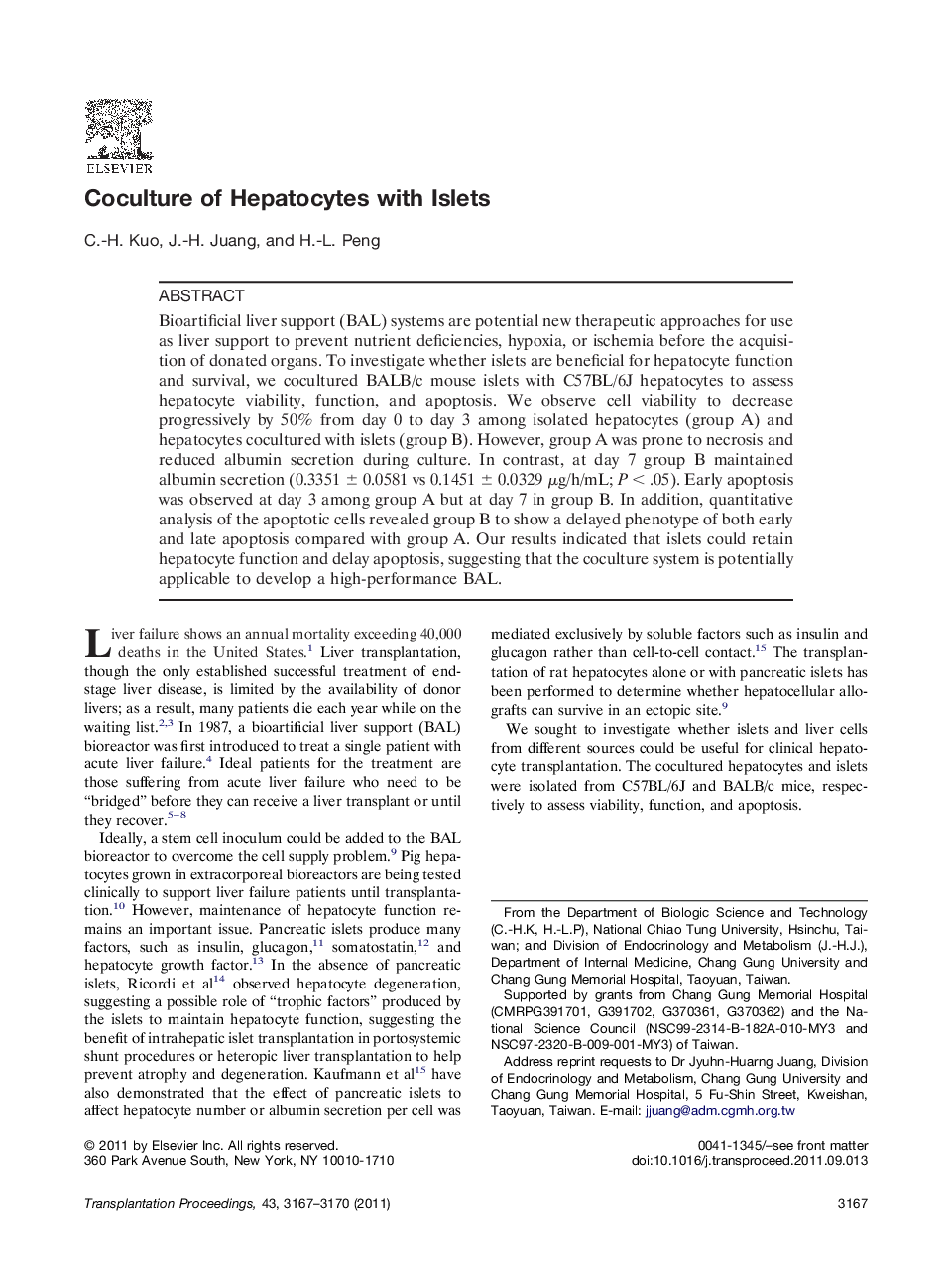| Article ID | Journal | Published Year | Pages | File Type |
|---|---|---|---|---|
| 4258546 | Transplantation Proceedings | 2011 | 4 Pages |
Bioartificial liver support (BAL) systems are potential new therapeutic approaches for use as liver support to prevent nutrient deficiencies, hypoxia, or ischemia before the acquisition of donated organs. To investigate whether islets are beneficial for hepatocyte function and survival, we cocultured BALB/c mouse islets with C57BL/6J hepatocytes to assess hepatocyte viability, function, and apoptosis. We observe cell viability to decrease progressively by 50% from day 0 to day 3 among isolated hepatocytes (group A) and hepatocytes cocultured with islets (group B). However, group A was prone to necrosis and reduced albumin secretion during culture. In contrast, at day 7 group B maintained albumin secretion (0.3351 ± 0.0581 vs 0.1451 ± 0.0329 μg/h/mL; P < .05). Early apoptosis was observed at day 3 among group A but at day 7 in group B. In addition, quantitative analysis of the apoptotic cells revealed group B to show a delayed phenotype of both early and late apoptosis compared with group A. Our results indicated that islets could retain hepatocyte function and delay apoptosis, suggesting that the coculture system is potentially applicable to develop a high-performance BAL.
